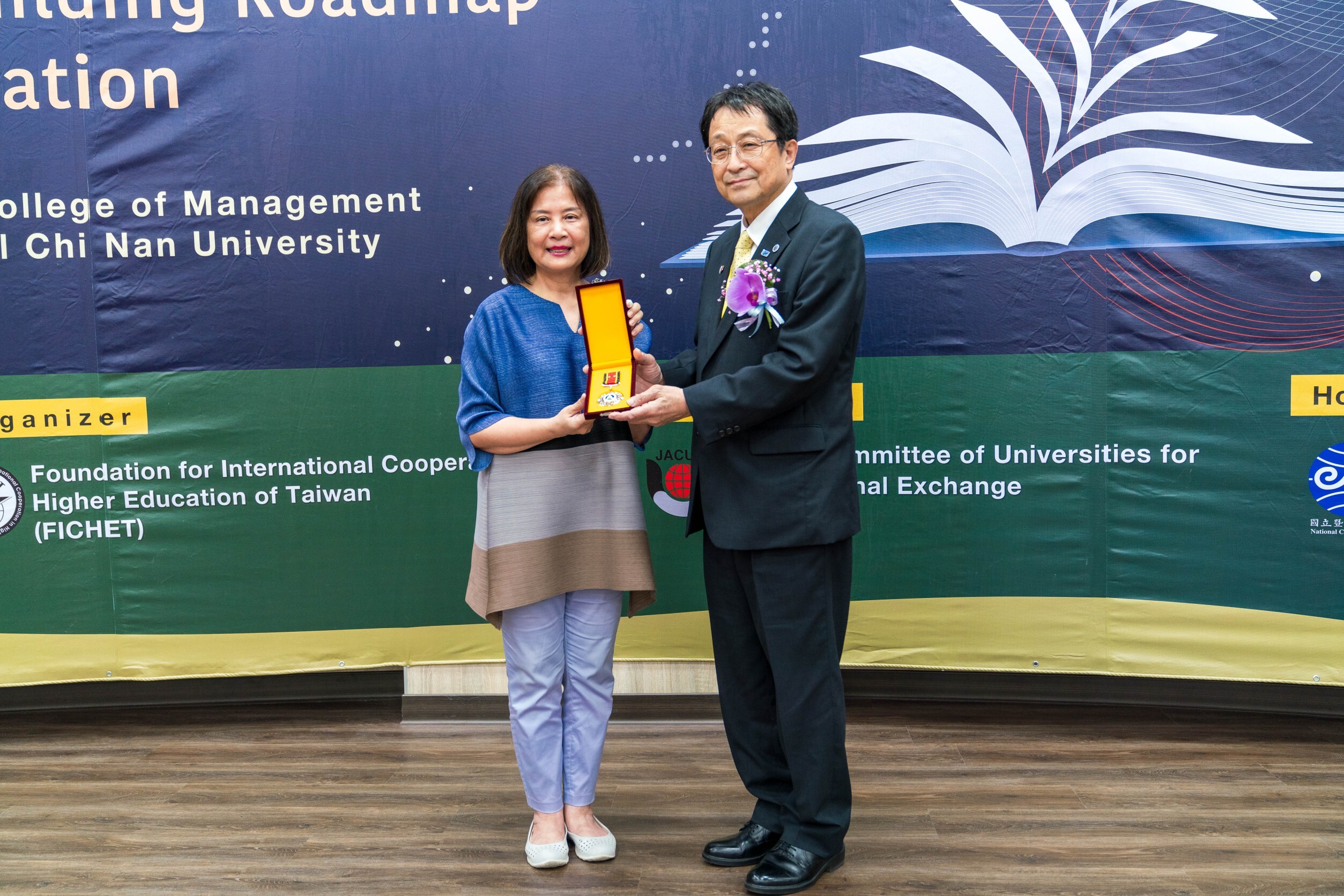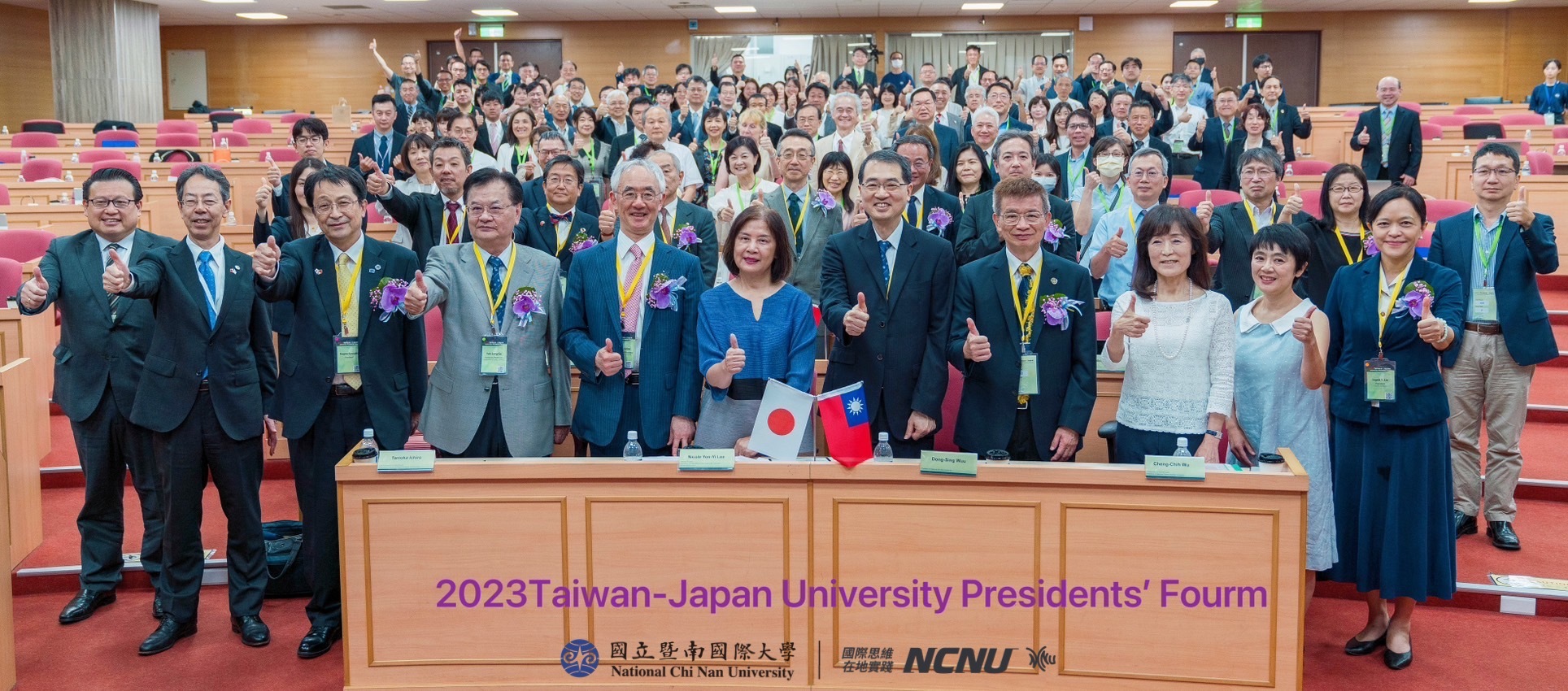Post-Pandemic Grand Event: 2023 Taiwan-Japan University Presidents Forum Held at National Chi Nan University


Post-Pandemic Grand Event: 2023 Taiwan-Japan University Presidents Forum Held at National Chi Nan University
The fourth Taiwan-Japan University Presidents Forum was held today at National Chi Nan University in Puli, Nantou. The forum saw the participation of presidents and vice presidents from 52 Taiwanese universities and presidents and international affairs executives from 26 Japanese universities. It is the most significant summit of higher education leaders between Taiwan and Japan since the pandemic outbreak.
In 2016, the Foundation for International Cooperation in Higher Education of Taiwan (FICHET) and the Japan Committee of Universities for International Exchange (JACUIE), representing Japan's national, public, and private universities, signed a mutual exchange agreement, marking the beginning of cooperation in higher education between Taiwan and Japan. FICHET's chairman, Wu Cheng Chi, also the president of National Taiwan Normal University, recommended this year's forum hosted by National Chi Nan University. Japanese attendees included national, public, and private university representatives, presidents, vice presidents, and relevant administrative personnel. At the same time, Taiwan was represented by university presidents, vice presidents, and international affairs executives, totaling more than 200 participants, making it a significant event for the Taiwan-Japan higher education exchange.
The Taiwan-Japan University Presidents Forum was first held in Taiwan in 2016 and has been hosted alternately by member universities every two years. In 2018, the Japan Association of National Universities (JANU) held it at the Royal Hotel in Hiroshima. However, due to the impact of the pandemic, it was suspended after 2020. In 2021, due to the ongoing pandemic, the Ministry of Education and FICHET decided to hold the Taiwan-Japan University Presidents Forum online. Finally, in 2023, with the elimination of the pandemic threat, it was successfully held in Puli, Nantou, Taiwan.
Director Li Yan Yi of the Ministry of Education's International and Cross-Strait Education Division warmly welcomed the Japanese university executives who traveled a long way to attend the event. She took this opportunity to present the Ministry of Education's Second-Class Medal to Nagata Kyosuke, President of Tsukuba University, on behalf of Minister Pan Wen-Chung, in recognition of his dedication and assistance in promoting academic exchange between Taiwan and Japan. Ichiro Tanioka, Vice-Chairman of JACUIE and President of Osaka Business University was also impressed by the environmentally friendly campus of National Chi Nan University. He emphasized that the Taiwan-Japan relationship is profound, and since signing the agreement in 2016, both countries have faced significant changes in the international landscape. Despite the challenges, he praised Taiwan's democratic achievements. He looked forward to strengthening the connection and sharing values through higher education, cherishing the hard-won achievements of freedom and democracy.
President Wuu Dong Sing of National Chi Nan University mentioned that the Taiwan-Japan University Presidents Forum is a platform for further discussing curriculum internationalization, talent cultivation in higher education, and talent recruitment. He also introduced Professor Oliver Su, the former president of Chi Nan University, who serves as the chief host of the University Social Responsibility Program Office of the Ministry of Education. In preparation for attending the 2020 Taiwan-Japan University Presidents Forum, former President Su hired a Japanese tutor and shared a humorous anecdote about passing the N4 Japanese language proficiency test.
During today's forum, presidents of universities such as Okayama University, Kumamoto University, Sophia University, Aichi Prefectural University, Tzu Chi University, National Cheng Kung University, National Taiwan University of Science and Technology, National Chengchi University, and National Taiwan University presented their experiences and insights on technology education, diversity, equality, talent acquisition, and interdisciplinary academic collaboration between Taiwan and Japan.


